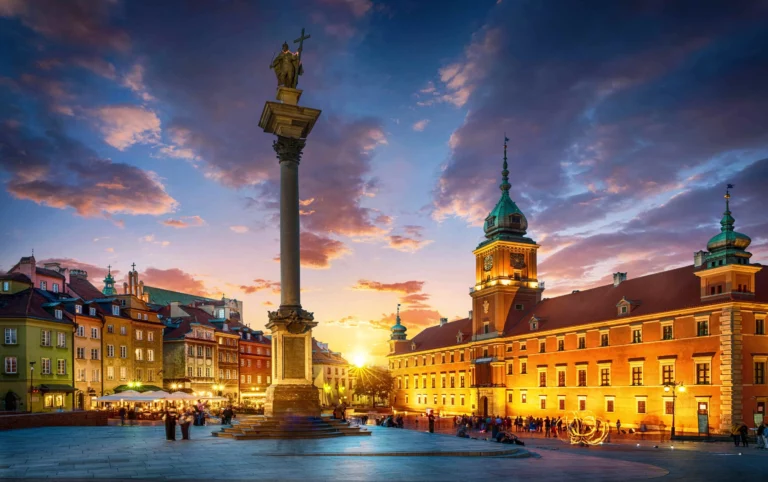Warsaw, the capital city of Poland, is a vibrant metropolis steeped in history, resilience, and cultural heritage. Known for its remarkable recovery from World War II devastation, the city offers a treasure trove of historical landmarks, museums, and sites that chronicle centuries of Polish history. Whether you’re interested in medieval architecture, wartime stories, or the city’s transformation into a modern hub, Warsaw has something for every history enthusiast. This guide explores 50 must-visit historical spots in Warsaw, each offering unique insights into the city’s storied past. These destinations are perfect for history buffs looking to immerse themselves in Poland’s rich cultural and historical legacy.
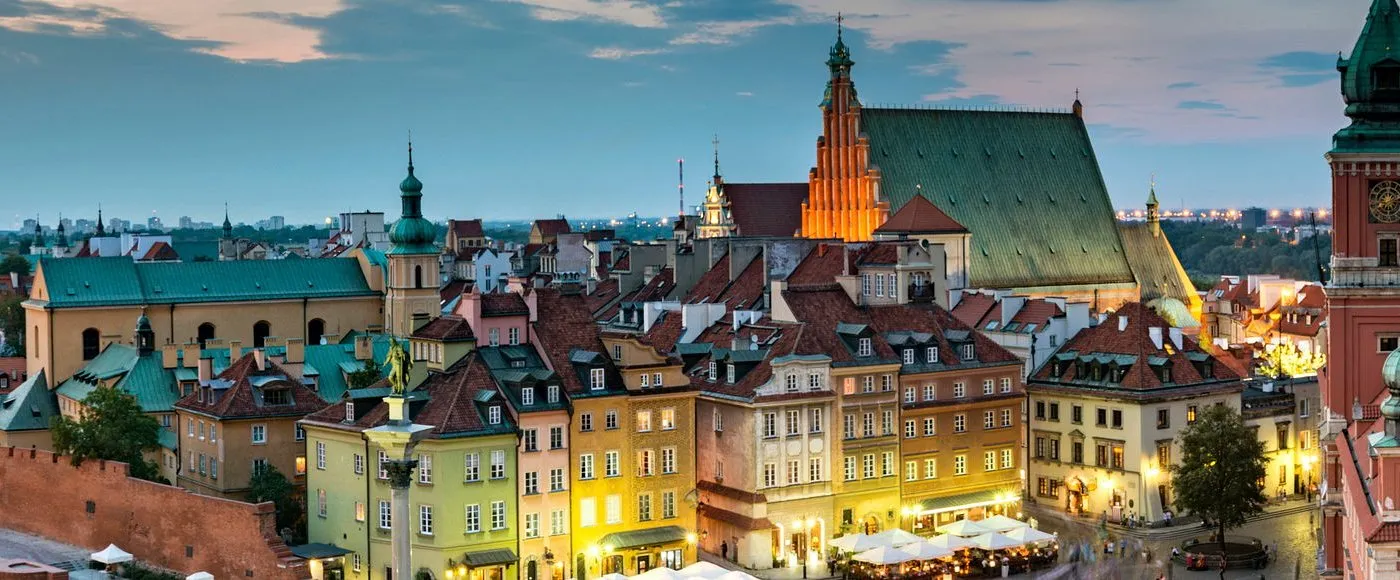
1. The Royal Castle
The Royal Castle, located in Castle Square, is a symbol of Poland’s royal history and resilience. Originally the residence of Polish monarchs, the castle was completely destroyed during World War II and later meticulously reconstructed. Its grand interiors, including the Throne Room and the Marble Room, showcase opulent design and historical artifacts. The castle also houses important works of art, including Rembrandt paintings. Visiting this site offers a glimpse into Poland’s regal past.
2. Old Town Market Square
The Old Town Market Square is the heart of Warsaw’s historic Old Town, a UNESCO World Heritage Site. This picturesque square, surrounded by colorful townhouses, reflects the charm of pre-war Warsaw. It’s a great spot to admire architecture, enjoy local cafes, and learn about the square’s role in Warsaw’s history. Rebuilt after the war, it’s a testament to the city’s determination to preserve its cultural heritage. A must-visit for anyone exploring Warsaw’s past.
3. Warsaw Uprising Museum
The Warsaw Uprising Museum is a powerful tribute to the Polish resistance during World War II. This interactive museum features exhibits, artifacts, and multimedia presentations that tell the story of the 1944 Warsaw Uprising. Learn about the bravery of Warsaw’s residents and the tragic consequences of the uprising. The museum also includes a replica of a wartime sewer system used by insurgents. It’s an emotional and educational experience for history enthusiasts.
4. Lazienki Park and Palace on the Isle
Lazienki Park is one of Warsaw’s most stunning green spaces, with historical landmarks like the Palace on the Isle. Built in the 18th century, the palace served as a summer residence for Polish royalty. The park’s serene atmosphere and classical architecture offer a glimpse into the leisure life of Poland’s aristocracy. Statues, fountains, and picturesque gardens make it an ideal spot for history lovers to relax. Guided tours provide insights into the park’s royal history.
5. Wilanów Palace
Wilanów Palace, often called the “Polish Versailles,” is a baroque masterpiece that showcases the grandeur of Polish nobility. Built for King John III Sobieski in the late 17th century, it’s one of the few historical sites to survive the war intact. Explore its lavish interiors, filled with period furniture, artworks, and royal artifacts. The surrounding gardens are a perfect example of formal landscaping. This palace is a must-visit for those interested in Poland’s royal heritage.
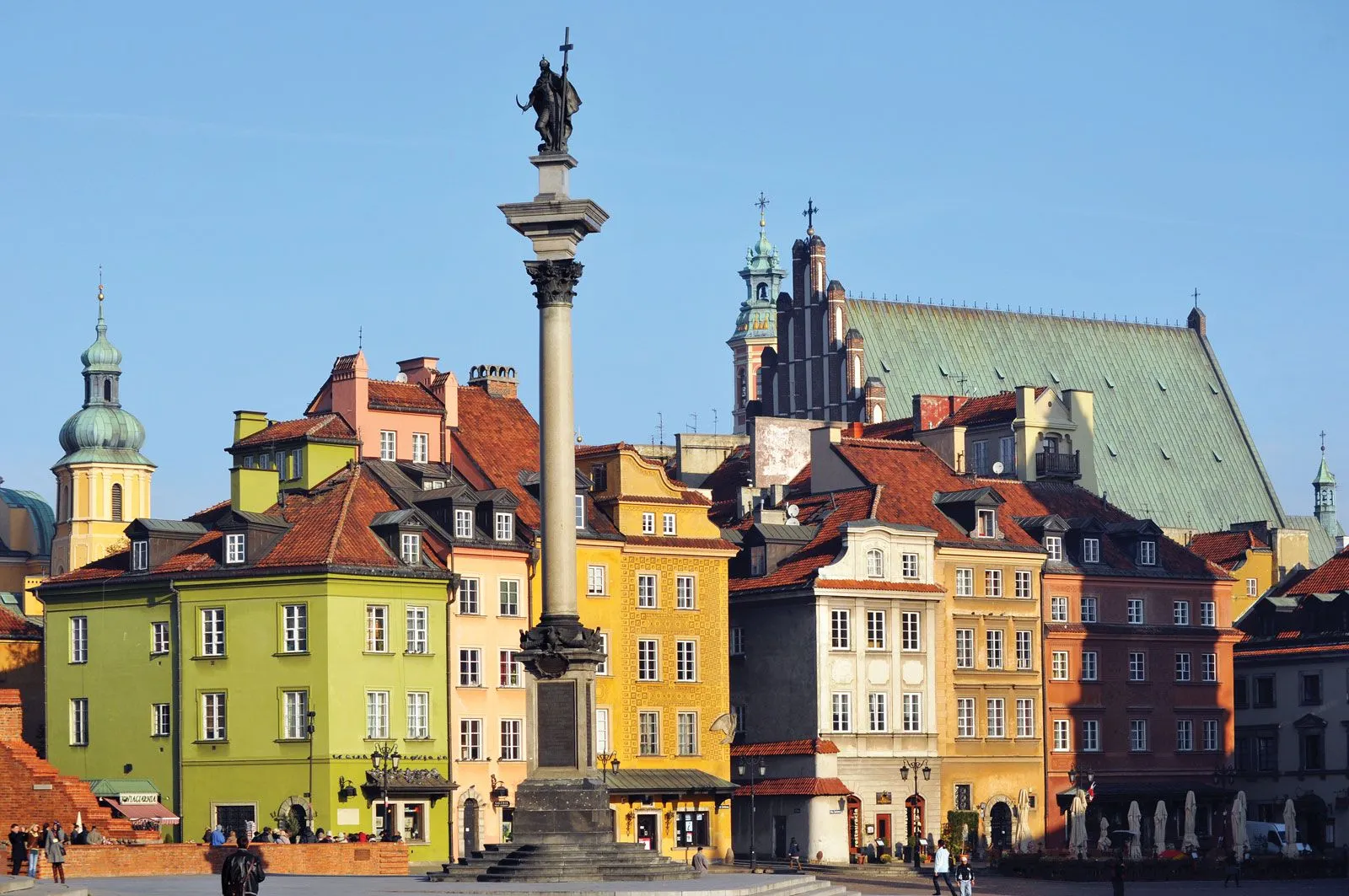
6. POLIN Museum of the History of Polish Jews
The POLIN Museum tells the 1,000-year history of Jewish life in Poland. Located on the site of the former Warsaw Ghetto, the museum features interactive exhibits, artifacts, and multimedia installations. Learn about the contributions of Polish Jews to the country’s history and culture, as well as the tragic events of the Holocaust. The museum’s architecture is also noteworthy, symbolizing hope and resilience. It’s a moving and comprehensive exploration of a significant part of Polish history.
7. Pilsudski Square and the Tomb of the Unknown Soldier
Pilsudski Square is a significant landmark in Warsaw, home to the Tomb of the Unknown Soldier. This memorial honors the unidentified Polish soldiers who gave their lives for their country. The square often hosts state ceremonies and military parades. Visitors can witness the solemn Changing of the Guard ceremony. It’s a place to reflect on Poland’s military history and pay tribute to its heroes.
8. St. John’s Archcathedral
St. John’s Archcathedral is one of Warsaw’s oldest and most important churches, dating back to the 14th century. It has witnessed key events in Polish history, including royal coronations and the signing of the Constitution of May 3, 1791. The cathedral was destroyed during World War II and later reconstructed in its original Gothic style. Inside, visitors can admire stunning altars, tombs of notable figures, and historical artifacts. It’s a must-see for those exploring Warsaw’s spiritual heritage.
9. The Barbican and City Walls
The Barbican, a medieval defensive structure, is a remnant of Warsaw’s old city walls. Built in the 16th century, it once protected the city from invaders and now serves as a popular historical attraction. Walk along the reconstructed city walls and imagine the challenges of defending the city in medieval times. The Barbican is a great spot for photos and historical exploration. It’s a reminder of Warsaw’s fortified past and resilience.
10. The Palace of Culture and Science
The Palace of Culture and Science is an iconic landmark and a testament to Warsaw’s post-war transformation. Built in the 1950s as a gift from the Soviet Union, it’s a towering example of Socialist Realist architecture. Visitors can explore its museums, theaters, and observation deck for panoramic views of Warsaw. The building’s history reflects Poland’s complex relationship with its communist past. It’s a fascinating blend of culture, politics, and architecture.
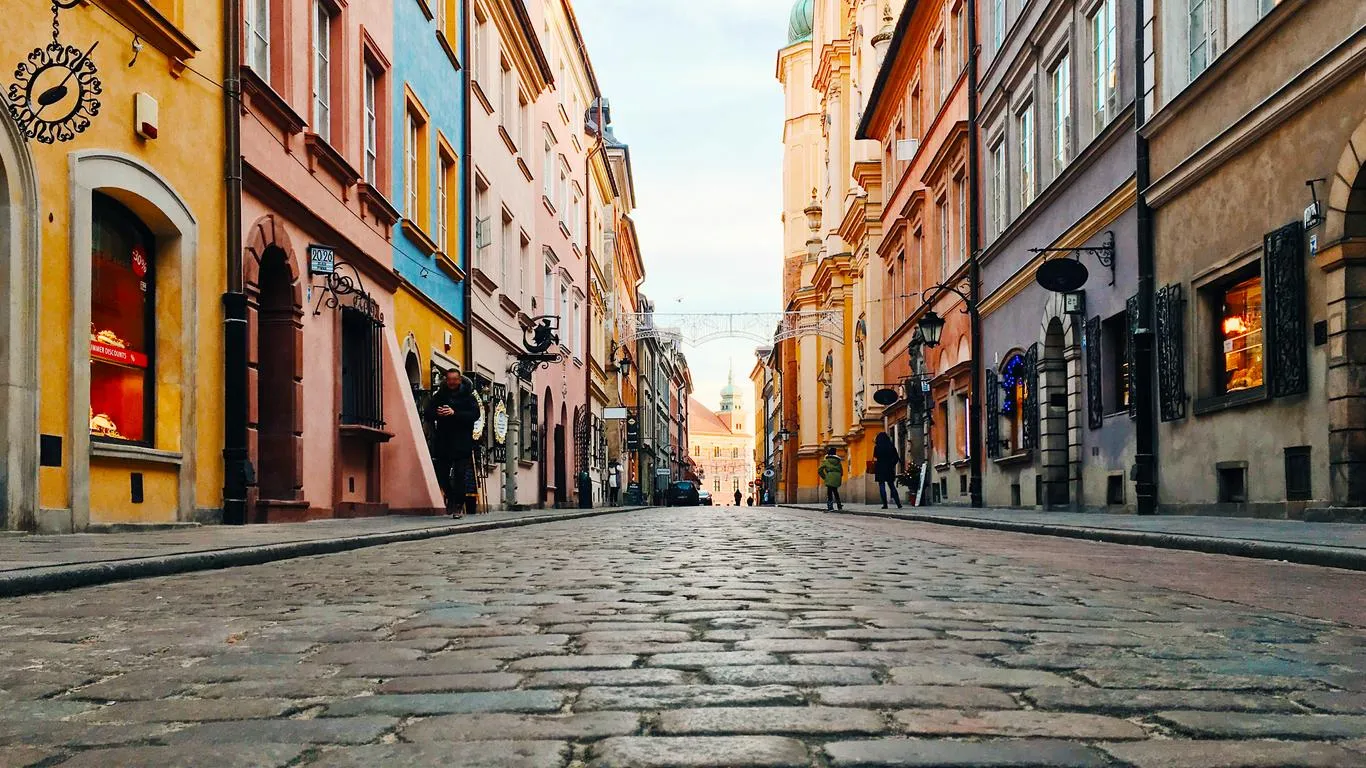
11. Krakowskie Przedmieście
Krakowskie Przedmieście, or the Royal Route, is one of Warsaw’s most historic streets, lined with landmarks and cultural sites. It connects the Old Town to Łazienki Park, passing iconic locations like the Presidential Palace and the University of Warsaw. This picturesque avenue is perfect for a leisurely walk while soaking in the history and charm of the city. Along the way, you’ll find statues, churches, and memorials that tell the story of Warsaw’s past. It’s a must-visit for history buffs seeking a deeper connection to Poland’s heritage.
12. The Grand Theatre – National Opera
The Grand Theatre, located in the heart of Warsaw, is one of Europe’s largest opera houses and a symbol of Poland’s rich cultural history. Established in the 19th century, the theater has hosted countless operas, ballets, and theatrical performances. The building, reconstructed after World War II, combines historical grandeur with modern architectural elements. Visitors can enjoy guided tours or attend a performance to experience its vibrant artistic legacy. It’s a cultural gem that highlights Warsaw’s dedication to preserving the arts.
13. Umschlagplatz Memorial
The Umschlagplatz Memorial is a poignant tribute to the Jewish residents of Warsaw who were deported during World War II. This site marks the location where thousands were sent to Nazi concentration camps during the Holocaust. The memorial features a wall inscribed with common Jewish and Polish names, symbolizing the lives lost. Visiting this site offers a moment of reflection on the atrocities of the past and the resilience of the human spirit. It’s a powerful and emotional stop for history enthusiasts.
14. Chopin Museum
Dedicated to the life and work of Poland’s greatest composer, Fryderyk Chopin, the Chopin Museum is a must-visit for music and history lovers. Located in the historic Ostrogski Palace, the museum houses manuscripts, letters, and personal items belonging to Chopin. Interactive exhibits bring his music and story to life, offering an immersive experience. The museum’s tranquil atmosphere makes it a fitting tribute to the composer’s genius. It’s a perfect stop for those interested in Poland’s cultural icons.
15. The Jewish Cemetery on Okopowa Street
The Jewish Cemetery in Warsaw is one of the largest and oldest Jewish cemeteries in Europe, dating back to the 19th century. It’s a serene and historically significant site, with over 200,000 graves, including those of prominent figures in Polish-Jewish history. The cemetery is filled with beautifully carved tombstones and monuments, each telling a story of the past. Visiting this site provides a deeper understanding of Warsaw’s Jewish heritage and the community’s contributions to Polish history.
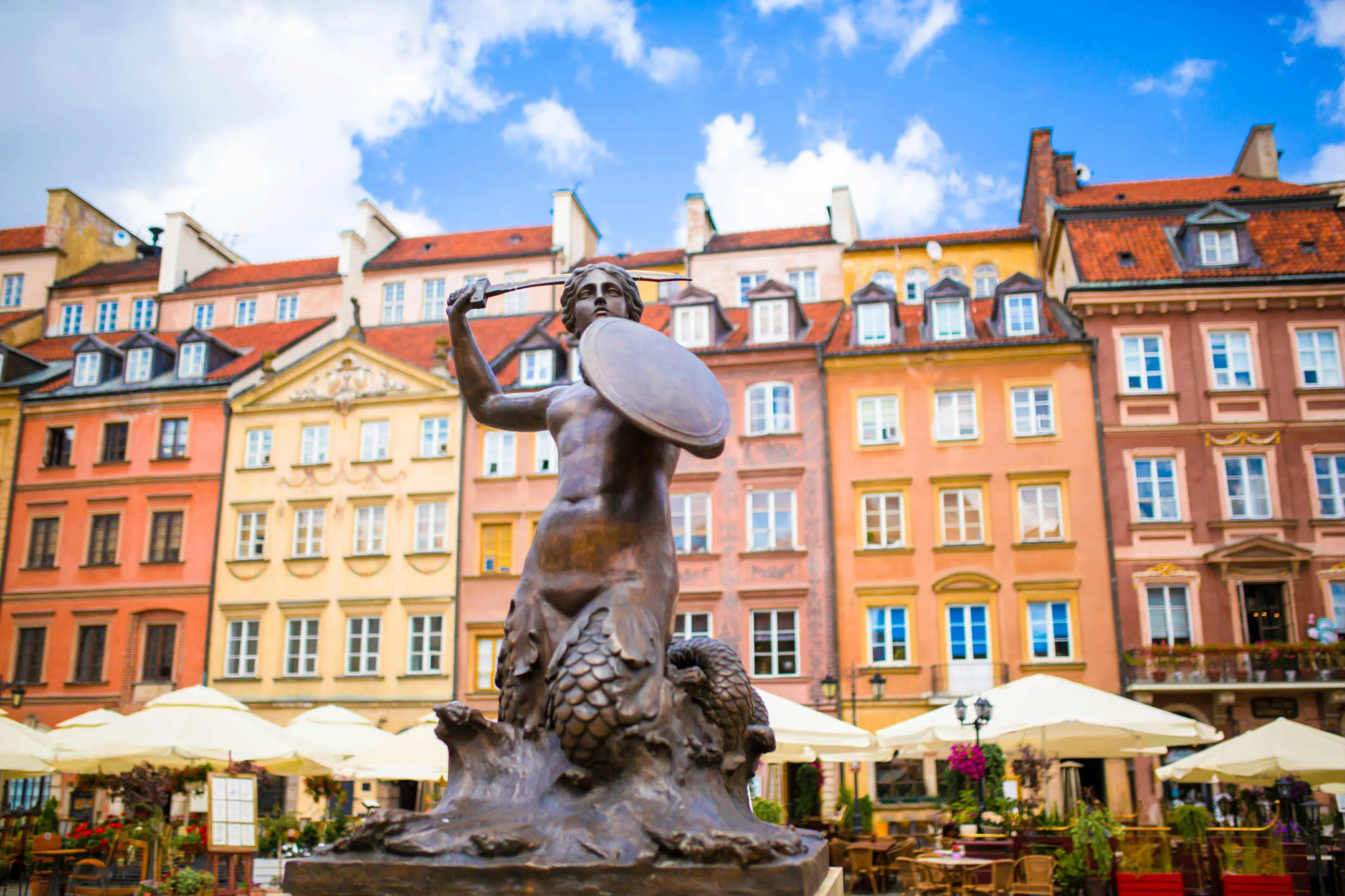
16. The Pawiak Prison Museum
The Pawiak Prison Museum is a harrowing reminder of Warsaw’s wartime history. Originally built in the 19th century, the prison was used by the Nazis during World War II to detain and torture members of the Polish resistance. The museum features exhibits, personal accounts, and artifacts that shed light on the struggles faced by prisoners. A reconstructed prison cell offers a glimpse into the conditions endured by inmates. It’s an essential stop for anyone interested in Warsaw’s role during the war.
17. The Warsaw Citadel
The Warsaw Citadel is a 19th-century fortress built by the Russian Empire to control the city and suppress uprisings. Today, it serves as a historical site and museum, offering insights into Poland’s resistance movements and military history. Visitors can explore its bastions, underground passages, and exhibits detailing the fortress’s significance. The Citadel is surrounded by greenery, making it a peaceful yet thought-provoking destination. It’s a testament to Warsaw’s resilience and determination to fight for freedom.
18. Praga District and the Neon Museum
The Praga District is one of Warsaw’s most eclectic neighborhoods, blending history with modern culture. Its cobblestone streets and pre-war architecture offer a glimpse into the city’s past. The Neon Museum, located in Praga, showcases a unique collection of neon signs from the communist era, preserving this artistic and cultural heritage. Walking through Praga, you’ll find street art, historic churches, and local markets that add to its charm. It’s a fascinating mix of old and new, perfect for curious travelers.
19. The Presidential Palace
The Presidential Palace, located along Krakowskie Przedmieście, is an important political and historical landmark in Warsaw. Originally built in the 17th century, the palace has served various roles, including housing Poland’s government and hosting significant events. Visitors can admire its elegant neoclassical architecture and the historical statues in the courtyard. While the interior is not open to the public, the palace’s exterior and surroundings are steeped in history. It’s a key stop for those exploring Warsaw’s political heritage.
20. The Zacheta National Gallery of Art
The Zacheta National Gallery of Art is one of Poland’s most prestigious art institutions, showcasing contemporary and historical works. Housed in a stunning neoclassical building, the gallery features rotating exhibitions that highlight Polish and international artists. The gallery’s history dates back to the 19th century, making it a cultural cornerstone of Warsaw. Visitors can explore thought-provoking installations, paintings, and sculptures that reflect Poland’s artistic evolution. It’s a great destination for art and history enthusiasts alike.
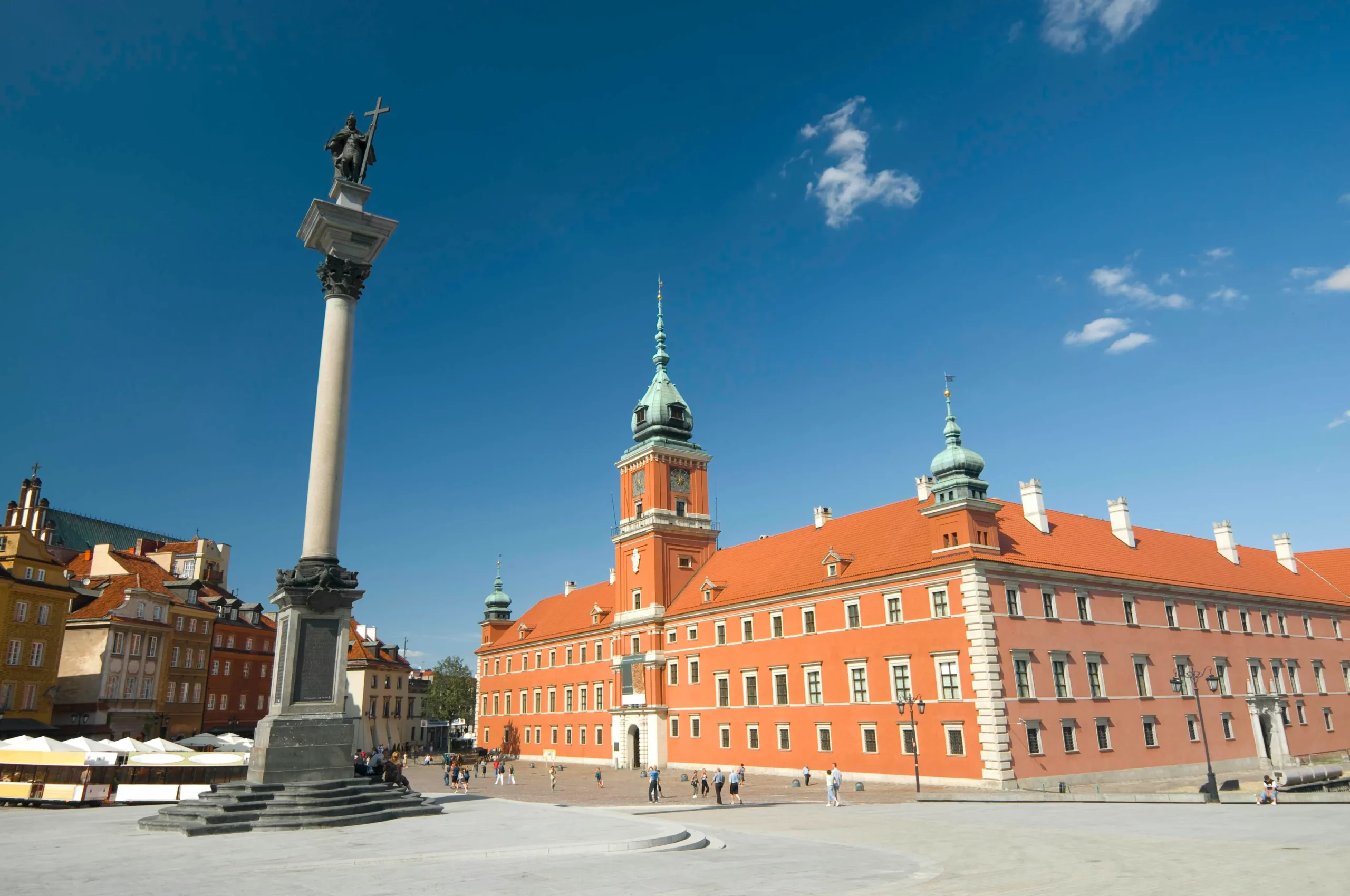
21. The Monument to the Ghetto Heroes
The Monument to the Ghetto Heroes is a tribute to the Jewish resistance fighters during the Warsaw Ghetto Uprising of 1943. This striking monument, located near the POLIN Museum, depicts brave individuals who stood against oppression. The memorial stands as a powerful symbol of courage, resilience, and the human spirit. Its location holds great significance, as it was once the heart of the Warsaw Ghetto. Visiting this site offers a poignant moment to reflect on history and honor the fight for freedom.
22. The Copernicus Science Centre
The Copernicus Science Centre, while primarily a science museum, also highlights Poland’s contributions to scientific discovery, particularly the legacy of Nicolaus Copernicus. Interactive exhibits explore various scientific fields, making it a fascinating destination for visitors of all ages. The center’s planetarium offers stunning shows about space exploration and the cosmos. Its modern design and engaging displays make science accessible and enjoyable. History buffs can appreciate the tribute to Copernicus, one of Poland’s most celebrated figures.
23. The Museum of Warsaw
Located in the Old Town Market Square, the Museum of Warsaw offers a comprehensive look at the city’s history. Its exhibits include artifacts, artworks, and documents that chronicle Warsaw’s evolution over the centuries. The museum spans multiple historic townhouses, each with its own themed exhibition. Visitors can explore topics ranging from everyday life in Warsaw to significant historical events. It’s an essential stop for anyone wanting to understand the city’s transformation through time.
24. St. Anne’s Church
St. Anne’s Church is one of Warsaw’s oldest churches, known for its stunning baroque architecture and historical significance. Located near Castle Square, the church has witnessed key moments in Polish history. Visitors can climb the bell tower for breathtaking views of the Old Town and beyond. Inside, the ornate interiors and historic artifacts offer a glimpse into Warsaw’s religious heritage. It’s a serene and inspiring spot for history and architecture enthusiasts.
25. The Nożyk Synagogue
The Nożyk Synagogue is the only pre-war synagogue in Warsaw that survived World War II and is still in use today. Built in the late 19th century, this historical and spiritual site serves as a reminder of Warsaw’s vibrant Jewish community before the Holocaust. The synagogue’s interior is beautifully restored, featuring intricate designs and historical elements. Guided tours provide insights into its significance and the community it serves. It’s a deeply moving site for those exploring Jewish heritage in Warsaw.
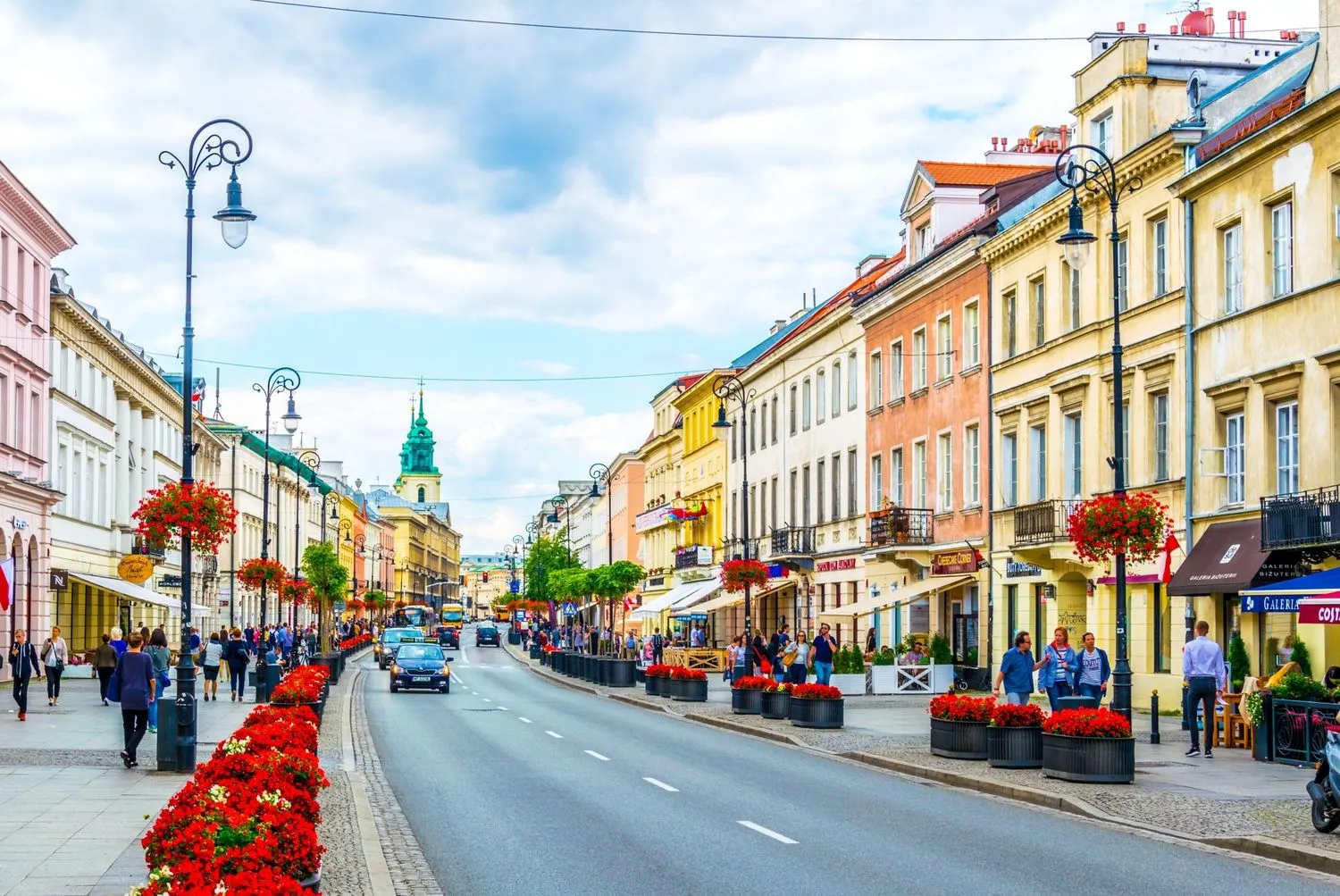
26. The Krasiński Palace and Gardens
The Krasiński Palace, also known as the Palace of the Commonwealth, is a baroque masterpiece with a rich history. Originally built in the 17th century for the Krasiński family, it later served as a public library and court building. The surrounding gardens are equally impressive, offering a peaceful retreat in the city. The palace’s striking architecture and historical significance make it a must-visit destination. It’s a perfect spot for history lovers and those seeking a serene escape.
27. Powązki Cemetery
Powązki Cemetery is one of Warsaw’s most important and historic burial grounds, established in the 18th century. It’s the resting place of many prominent Poles, including artists, scientists, and national heroes. The cemetery’s beautiful tombstones, sculptures, and mausoleums reflect Poland’s rich artistic and cultural heritage. Walking through Powązki offers a unique perspective on Warsaw’s history and its notable figures. It’s a tranquil and thought-provoking site for visitors.
28. The Monument of the Warsaw Mermaid
The Warsaw Mermaid, or Syrenka, is a symbol of the city and an important figure in its folklore. The monument, located in the Old Town Market Square, depicts the legendary protector of Warsaw. The mermaid’s story is deeply rooted in Polish culture, symbolizing bravery and resilience. Visitors can learn about the myth and its significance to the city. The monument is a popular spot for photos and a key part of Warsaw’s identity.
29. The Czapski Palace and Chopin’s Salons
The Czapski Palace, a stunning baroque building, houses the Chopin Family Parlors, where the composer spent part of his youth. This historical site offers a glimpse into Chopin’s early life and his connection to Warsaw. Visitors can see memorabilia, letters, and items from Chopin’s time. The palace also features elegant architecture and beautiful gardens. It’s a must-visit for those interested in music history and Polish cultural heritage.
30. The Warsaw Fotoplastikon
The Warsaw Fotoplastikon is a unique and fascinating historical attraction that showcases 19th-century stereoscopic photographs. Visitors can view images of Warsaw from the past, offering a glimpse into the city’s pre-war life. This hidden gem is one of the few remaining operational stereoscopic theaters in the world. The intimate setting and vintage charm make it a delightful stop for history buffs. It’s a one-of-a-kind way to experience Warsaw’s visual history.
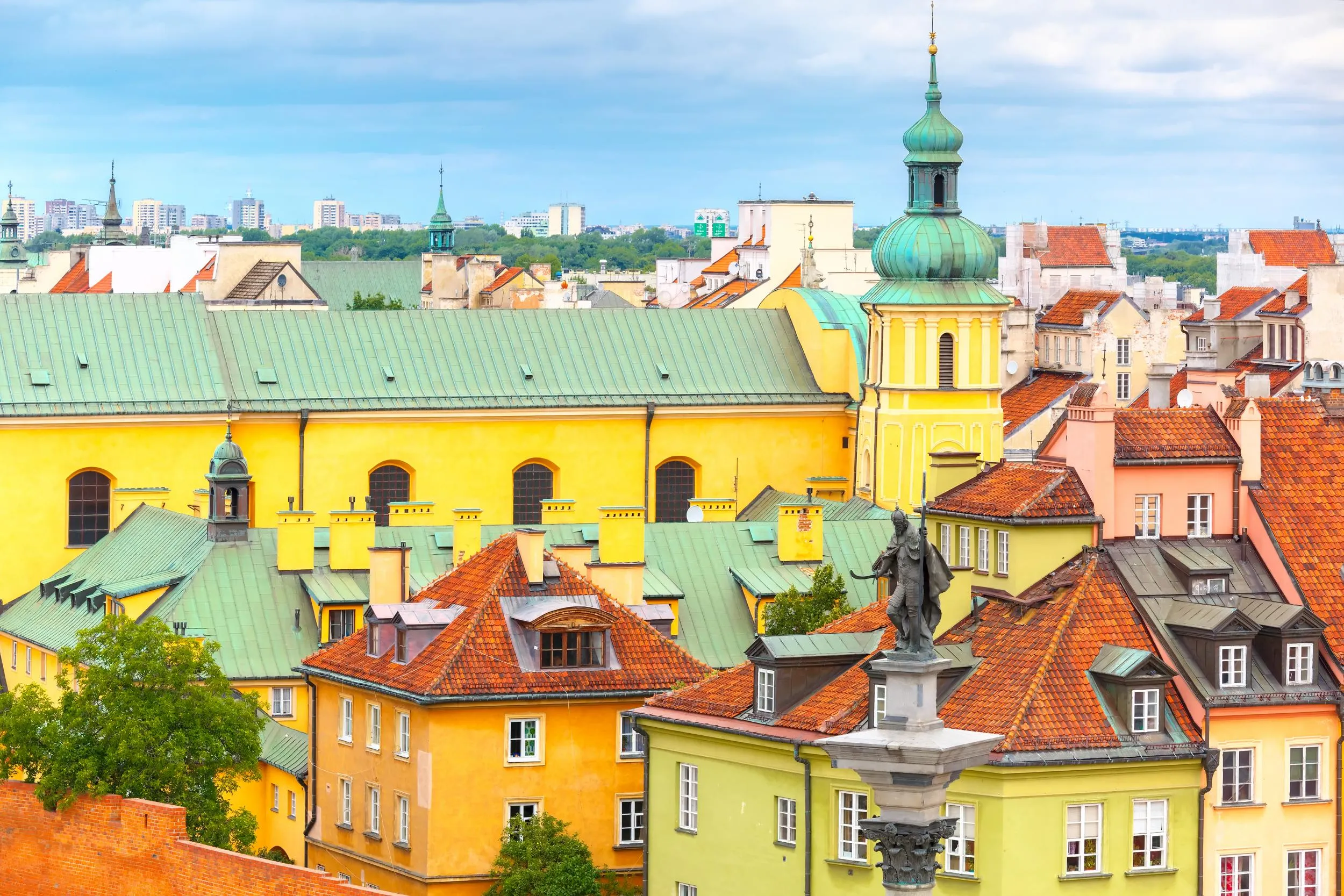
31. Ujazdowski Castle
Ujazdowski Castle, now home to the Center for Contemporary Art, has a long and storied history. Originally built as a royal residence in the 17th century, it later served various purposes, including as a military hospital. The castle’s current use blends its historical roots with modern creativity. Visitors can explore art exhibitions while admiring the castle’s architecture and gardens. It’s a perfect destination for those who appreciate a mix of history and contemporary culture.
32. The Ossoliński Palace
The Ossoliński Palace is a baroque gem with a fascinating history, located on Krakowskie Przedmieście. Once home to prominent Polish families, the palace is now part of the Ministry of Foreign Affairs. Its elegant design and historical significance make it a noteworthy stop along the Royal Route. Visitors can admire the architecture and learn about its role in Warsaw’s history. It’s a beautiful example of Poland’s aristocratic heritage.
33. The Vistula Boulevards
The Vistula Boulevards combine history with modern leisure, running along the banks of Warsaw’s iconic river. This area features walking paths, historic bridges, and stunning views of the city’s skyline. Visitors can enjoy sculptures, murals, and references to Warsaw’s maritime heritage. The boulevards are a vibrant spot for both relaxation and historical exploration. They reflect Warsaw’s connection to its natural and cultural environment.
34. The Carmelite Church
The Carmelite Church, also known as the Church of St. Joseph the Spouse, is a historic baroque church located along Krakowskie Przedmieście. It’s known for its stunning facade, intricate interiors, and historical significance. The church has witnessed many key events in Warsaw’s history, making it a spiritual and cultural landmark. Visitors can admire its beauty while reflecting on its place in the city’s heritage. It’s a peaceful and inspiring stop for history buffs.
35. The Museum of Caricature and Cartoon Art
This unique museum celebrates the art of satire and cartooning, showcasing works by Polish and international artists. Housed in a historical building, the museum highlights how caricatures and cartoons have reflected political and social history. Visitors can explore exhibitions that combine humor with historical commentary. It’s a fun and thought-provoking destination for those who appreciate the lighter side of history. The museum offers a refreshing take on Warsaw’s cultural heritage.
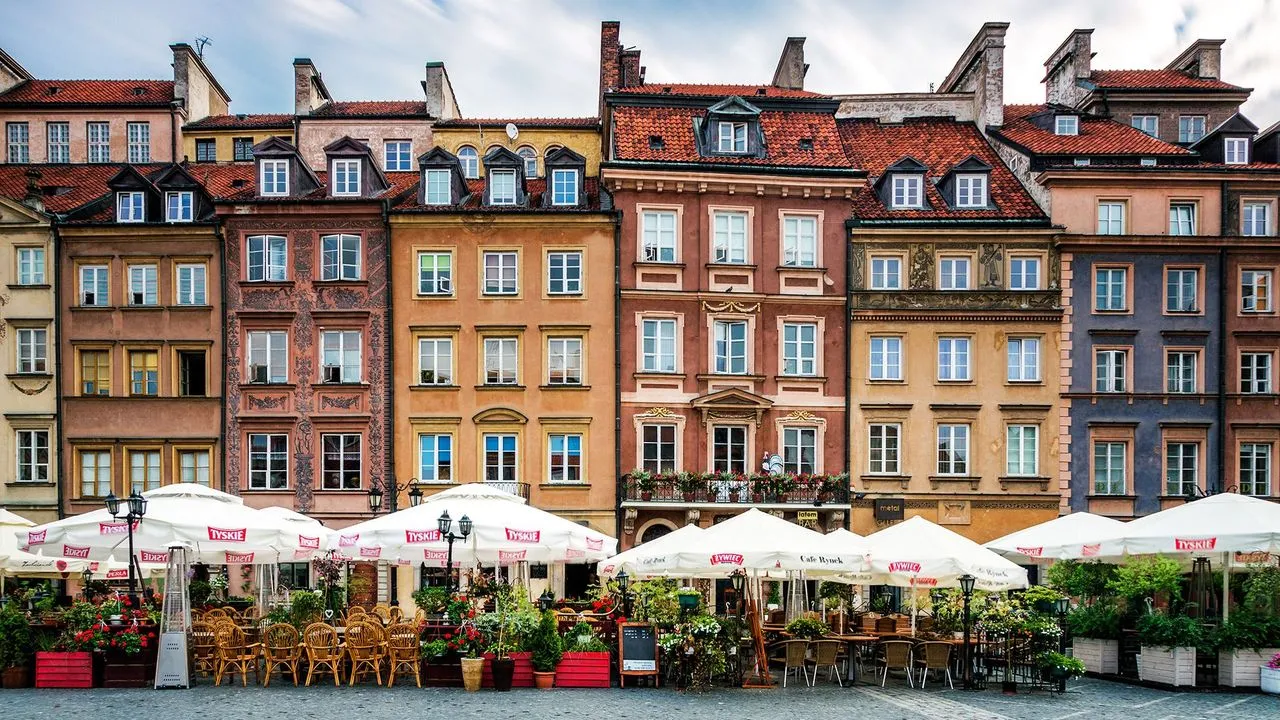
36. The Field Cathedral of the Polish Army
The Field Cathedral of the Polish Army, also known as the Church of Our Lady Queen of the Polish Crown, is a significant religious and military landmark. Built in the 17th century, it has been a symbol of faith and patriotism for Poland’s armed forces. The cathedral features stunning interiors, including memorials dedicated to soldiers who fought for Poland’s freedom. Visitors can explore its historical artifacts, including battle standards and plaques commemorating military heroes. It’s a moving site that connects faith, history, and national pride.
37. The Museum of Independence
The Museum of Independence in Warsaw focuses on Poland’s long struggle for freedom and sovereignty. Located in the historic Radziwiłł Palace, it showcases documents, photographs, and artifacts related to Poland’s independence movements. The museum covers key events such as the partitions of Poland, uprisings, and the country’s eventual liberation. Visitors can learn about the resilience and determination of the Polish people through its comprehensive exhibits. It’s a must-visit for anyone interested in Poland’s fight for freedom.
38. Warsaw University Library and Gardens
The Warsaw University Library is not only an academic hub but also a site of architectural and historical significance. Its rooftop garden is one of the largest in Europe, offering panoramic views of the city and the Vistula River. The library’s unique design blends modernity with historical elements, creating a space that’s both functional and visually stunning. Visitors can explore its beautiful green spaces and admire the exterior, which features engraved literary and scientific texts. It’s a peaceful retreat for those seeking history and relaxation.
39. The Żabiński Villa in the Warsaw Zoo
The Żabiński Villa, located within the Warsaw Zoo, played a significant role during World War II. Jan and Antonina Żabiński, the zoo’s directors, used their home to hide Jewish refugees from the Nazis, saving countless lives. Today, the villa serves as a museum, offering guided tours that tell the story of the Żabińskis’ bravery and humanity. Visitors can see artifacts, photographs, and the underground spaces used as hiding places. It’s a powerful reminder of the courage and compassion displayed during one of history’s darkest times.
40. Constitution Square (Plac Konstytucji)
Constitution Square is a landmark of Socialist Realist architecture, built during the post-war reconstruction of Warsaw. It was designed to reflect the ideals of communist Poland, with wide avenues, imposing buildings, and sculptures representing workers and farmers. Today, the square is a fascinating glimpse into Warsaw’s communist-era history, offering insights into the city’s transformation. Visitors can explore its surroundings, including cafes and cultural spaces, to experience the blend of history and modernity.
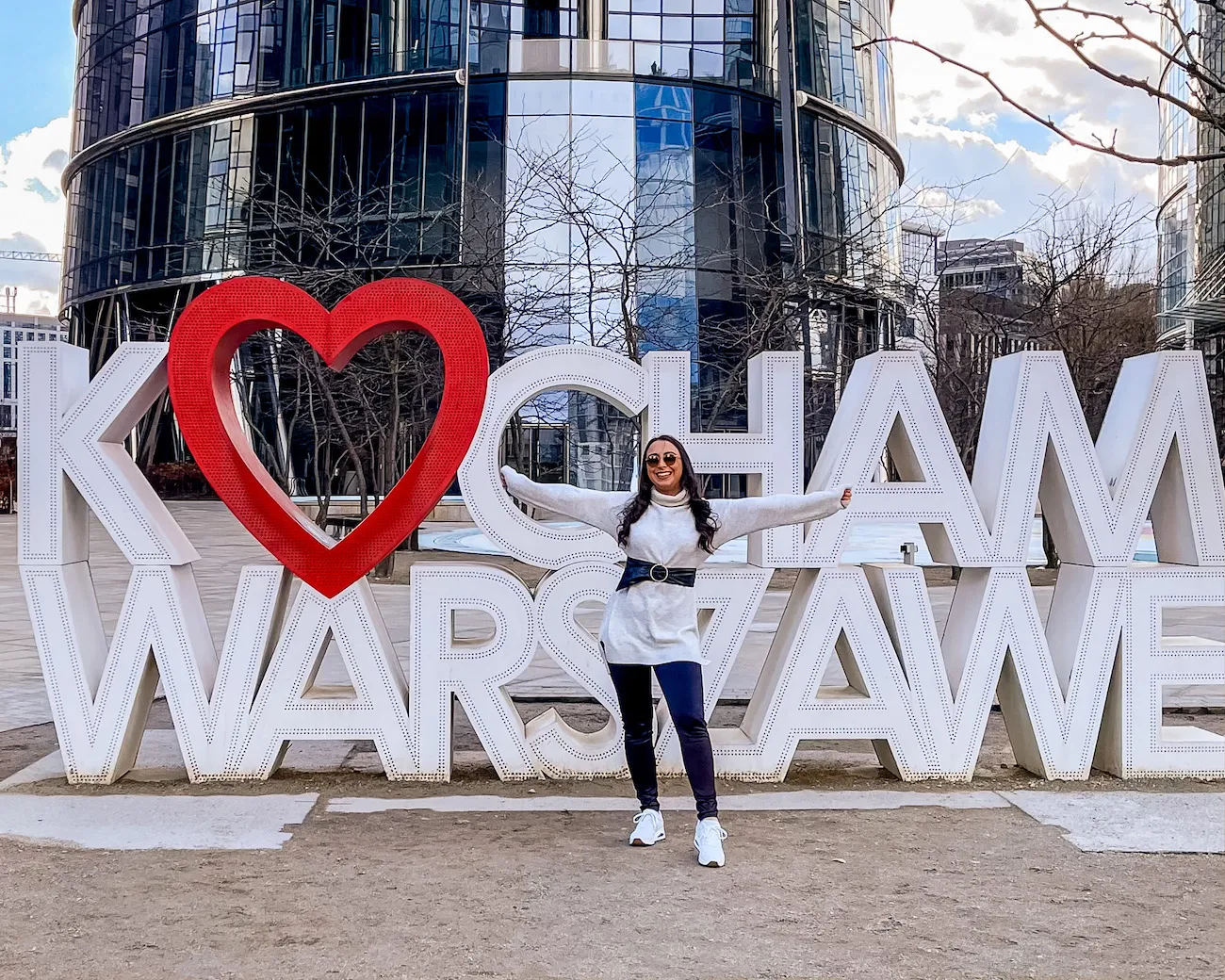
41. The Museum of the Polish Army
The Museum of the Polish Army is one of Warsaw’s most important military museums, showcasing the history of Poland’s armed forces. Its extensive collection includes weapons, uniforms, and military artifacts from different periods, from medieval times to modern conflicts. The outdoor display features tanks, airplanes, and artillery pieces, offering a hands-on experience. Visitors can learn about Poland’s military heroes, battles, and innovations. It’s a captivating destination for those interested in military history.
42. The Sigismund’s Column
The Sigismund’s Column, located in Castle Square, is one of Warsaw’s most iconic monuments. Erected in the 17th century to honor King Sigismund III Vasa, it’s a symbol of the city’s royal heritage. The column has witnessed many historical events, including the destruction and rebuilding of the Old Town. Visitors can admire its grandeur and learn about its significance in Warsaw’s history. The surrounding square is perfect for exploring the city’s vibrant atmosphere.
43. The Royal Łazienki Amphitheater
Located within Łazienki Park, the Royal Amphitheater is an 18th-century open-air venue inspired by ancient Roman theaters. Surrounded by lush greenery and a lake, it’s a beautiful site that once hosted royal performances. Today, it’s used for concerts and cultural events, making it a vibrant part of Warsaw’s artistic scene. Visitors can explore the amphitheater’s history while enjoying the park’s serene ambiance. It’s a perfect spot for history buffs and culture lovers.
44. The Monument to the Victims of the Wola Massacre
This powerful memorial commemorates the tens of thousands of civilians who were killed in the Wola district during the Warsaw Uprising. The monument features sculptures and plaques that honor the victims and highlight the atrocities committed. Visiting the site offers a moment to reflect on the human cost of war and the resilience of Warsaw’s residents. It’s an essential stop for understanding the tragic events of World War II.
45. The National Museum in Warsaw
The National Museum is one of Poland’s largest and most comprehensive museums, showcasing art, history, and archaeology. Its extensive collection includes ancient artifacts, medieval religious art, and masterpieces by Polish and European artists. Highlights include works by Jan Matejko and the Faras Gallery, which features stunning Nubian Christian frescoes. The museum’s modern exhibitions and historical treasures offer a rich and engaging experience. It’s a must-visit destination for history and art enthusiasts.
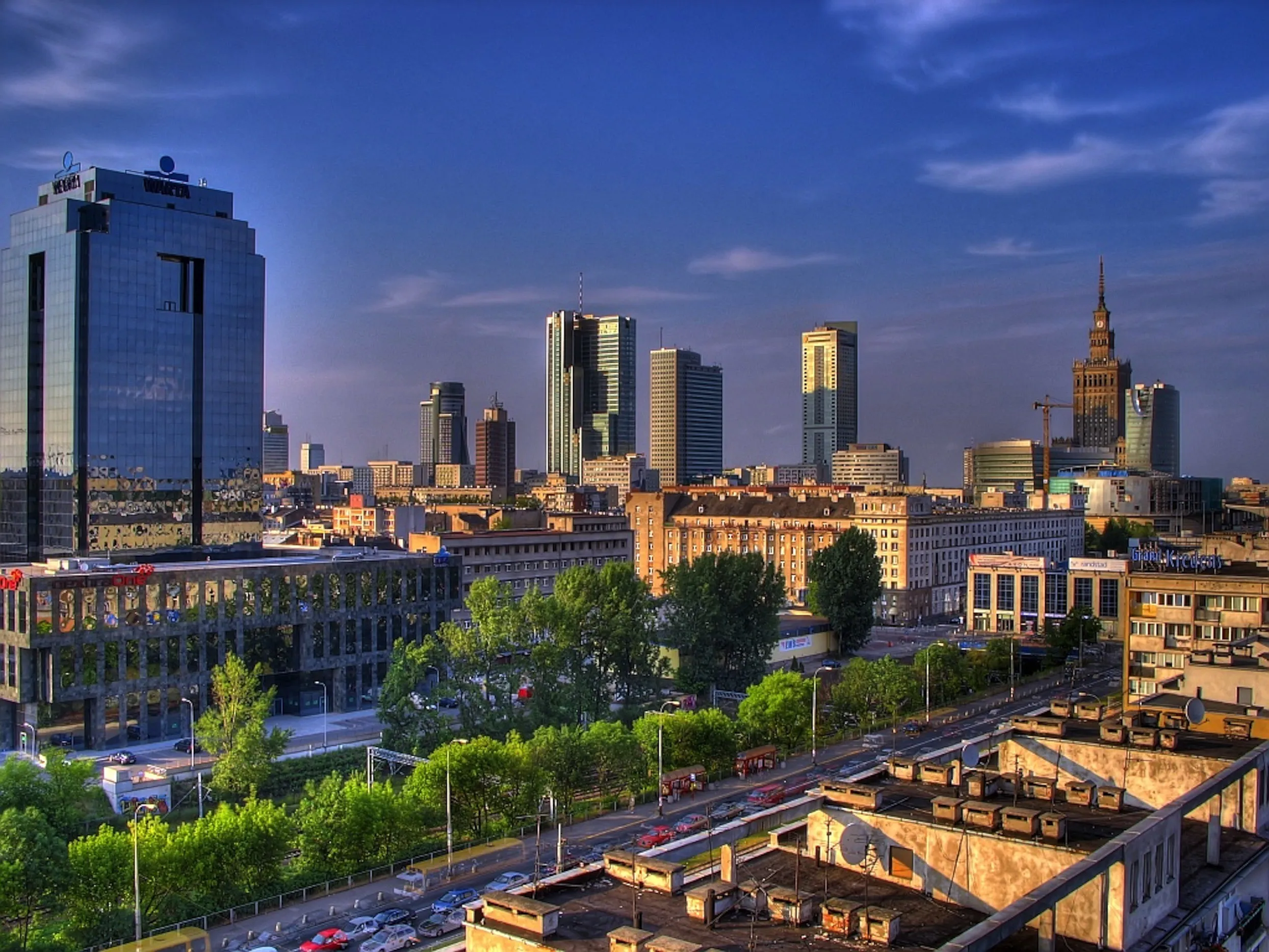
46. The Saxon Garden
The Saxon Garden, established in the 18th century, is one of Warsaw’s oldest public parks. Once part of the Saxon Palace, it’s now a tranquil green space filled with fountains, sculptures, and historic landmarks. The Tomb of the Unknown Soldier, located at the edge of the garden, adds to its historical significance. Visitors can enjoy a peaceful stroll while reflecting on the park’s connection to Warsaw’s royal past. It’s a perfect blend of natural beauty and history.
47. The Józef Piłsudski Museum in Sulejówek
Located just outside Warsaw, this museum is dedicated to Józef Piłsudski, one of Poland’s most revered leaders. The museum features exhibits on Piłsudski’s life, military achievements, and role in Poland’s independence. Visitors can explore the historic manor where he lived, along with modern exhibitions that provide a deeper understanding of his legacy. It’s a fascinating destination for those interested in Polish history and leadership.
48. The Warsaw Rising Monument
The Warsaw Rising Monument pays tribute to the bravery and sacrifice of those who participated in the 1944 Warsaw Uprising. This dynamic sculpture depicts insurgents in action, capturing the intensity and heroism of the time. The monument stands near the Supreme Court building, adding to its historical and architectural significance. Visiting this site offers a powerful connection to Warsaw’s wartime history and the spirit of its people.
49. The St. Florian’s Cathedral
Located in the Praga district, St. Florian’s Cathedral is a neo-Gothic masterpiece and a symbol of resilience. Built in the late 19th century, it was heavily damaged during World War II and later restored to its former glory. The cathedral’s twin spires and intricate interiors make it an architectural gem. Visitors can admire its beauty while learning about its role in Warsaw’s religious and cultural history.
50. The Piłsudski Mound in Warsaw’s Wawer District
The Piłsudski Mound is a symbolic monument dedicated to Józef Piłsudski, celebrating his role in Poland’s independence. Located in the Wawer district, the mound offers panoramic views of the surrounding area. Visitors can learn about Piłsudski’s contributions while enjoying the natural beauty of the site. It’s a peaceful and inspiring destination for history lovers and outdoor enthusiasts.
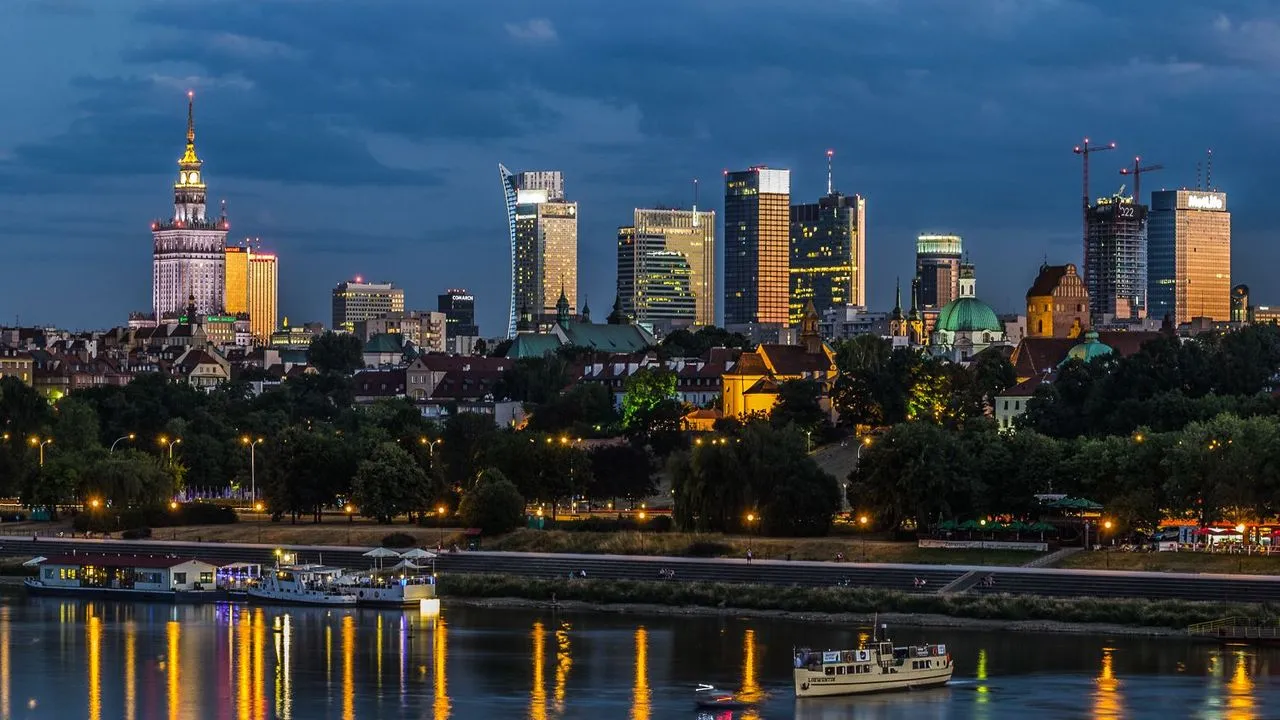
Warsaw is a city that wears its history with pride, resilience, and grace. From its reconstructed Old Town to its powerful wartime memorials, the Polish capital offers a journey through centuries of triumphs, struggles, and cultural evolution. For history buffs, Warsaw is a living museum where every street, monument, and museum tells a story of courage, innovation, and the indomitable spirit of its people. This guide to the top 50 tourist spots in Warsaw for history buffs highlights the city’s remarkable ability to honor its past while embracing its future. Each site, whether it’s the Royal Castle, the Warsaw Uprising Museum, or the serene Saxon Garden, provides a deeper understanding of Poland’s heritage and the pivotal moments that shaped it.
